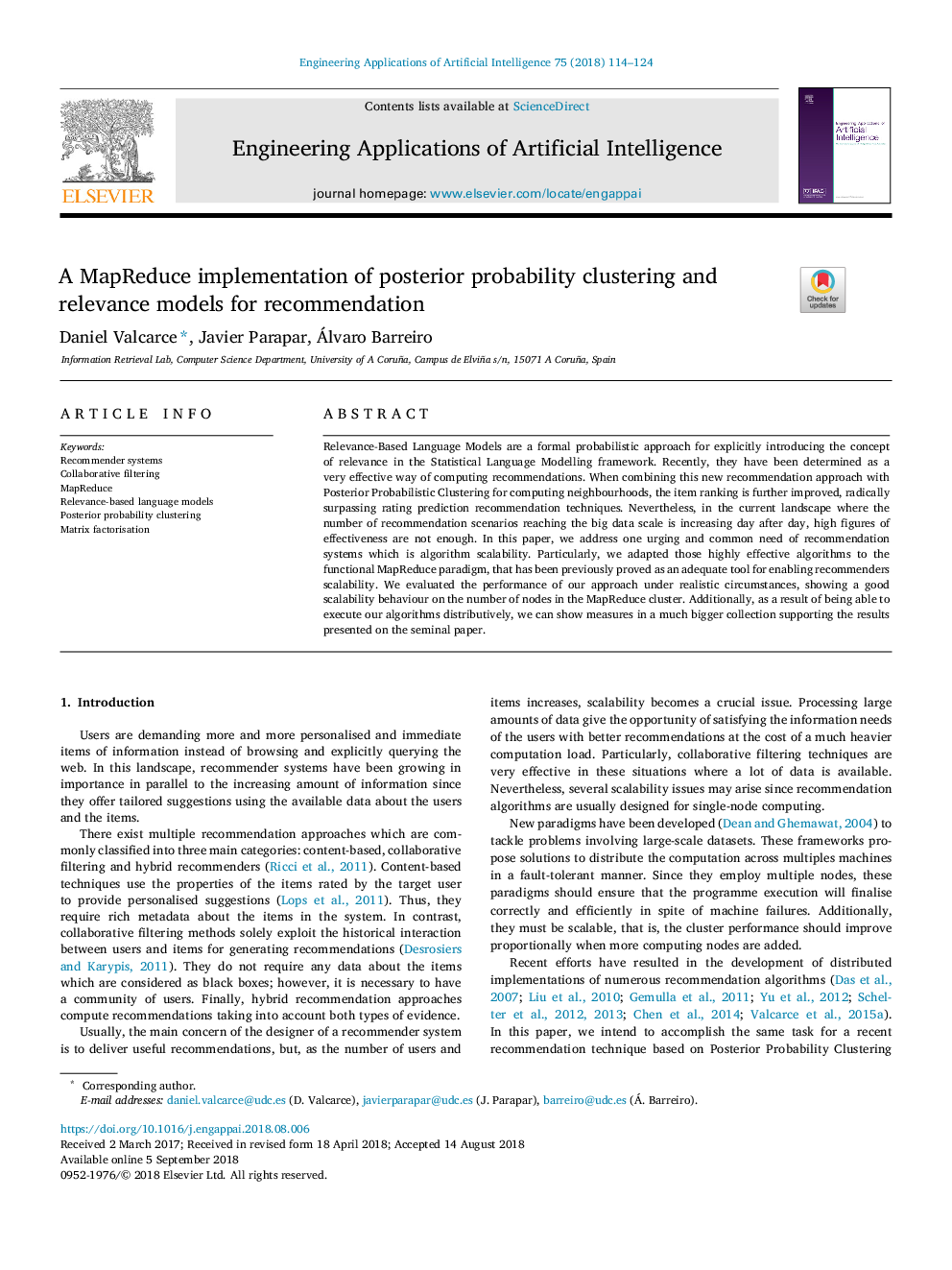| Article ID | Journal | Published Year | Pages | File Type |
|---|---|---|---|---|
| 9952074 | Engineering Applications of Artificial Intelligence | 2018 | 11 Pages |
Abstract
Relevance-Based Language Models are a formal probabilistic approach for explicitly introducing the concept of relevance in the Statistical Language Modelling framework. Recently, they have been determined as a very effective way of computing recommendations. When combining this new recommendation approach with Posterior Probabilistic Clustering for computing neighbourhoods, the item ranking is further improved, radically surpassing rating prediction recommendation techniques. Nevertheless, in the current landscape where the number of recommendation scenarios reaching the big data scale is increasing day after day, high figures of effectiveness are not enough. In this paper, we address one urging and common need of recommendation systems which is algorithm scalability. Particularly, we adapted those highly effective algorithms to the functional MapReduce paradigm, that has been previously proved as an adequate tool for enabling recommenders scalability. We evaluated the performance of our approach under realistic circumstances, showing a good scalability behaviour on the number of nodes in the MapReduce cluster. Additionally, as a result of being able to execute our algorithms distributively, we can show measures in a much bigger collection supporting the results presented on the seminal paper.
Related Topics
Physical Sciences and Engineering
Computer Science
Artificial Intelligence
Authors
Daniel Valcarce, Javier Parapar, Álvaro Barreiro,
